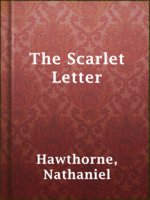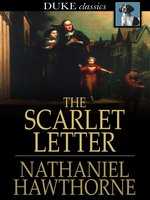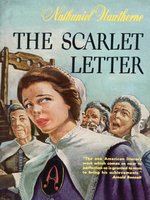Nathaniel Hawthorne
 Nathaniel Hawthorne (born Nathaniel Hathorne; July 4, 1804 – May 19, 1864) was an American novelist and short story writer. His works often focus on history, morality, and religion.
Nathaniel Hawthorne (born Nathaniel Hathorne; July 4, 1804 – May 19, 1864) was an American novelist and short story writer. His works often focus on history, morality, and religion.He was born in 1804 in Salem, Massachusetts, from a family long associated with that town. Hawthorne entered Bowdoin College in 1821, was elected to Phi Beta Kappa in 1824, and graduated in 1825. He published his first work in 1828, the novel ''Fanshawe''; he later tried to suppress it, feeling that it was not equal to the standard of his later work. He published several short stories in periodicals, which he collected in 1837 as ''Twice-Told Tales''. The following year, he became engaged to Sophia Peabody. He worked at the Boston Custom House and joined Brook Farm, a transcendentalist community, before marrying Peabody in 1842. The couple moved to The Old Manse in Concord, Massachusetts, later moving to Salem, the Berkshires, then to The Wayside in Concord. ''The Scarlet Letter'' was published in 1850, followed by a succession of other novels. A political appointment as consul took Hawthorne and family to Europe before their return to Concord in 1860. Hawthorne died on May 19, 1864.
Much of Hawthorne's writing centers on New England, and many works feature moral metaphors with an anti-Puritan inspiration. His fiction works are considered part of the Romantic movement and, more specifically, dark romanticism. His themes often center on the inherent evil and sin of humanity, and his works often have moral messages and deep psychological complexity. His published works include novels, short stories, and a biography of his college friend Franklin Pierce, written for his 1852 campaign for President of the United States, which Pierce won, becoming the 14th president. Provided by Wikipedia
-
1
-
2
-
3
-
4
-
5
-
6
-
7
-
8
-
9
-
10
-
11
eAudio - 1999
-
12
eAudio - 2011
-
13
-
14
-
15
-
16
-
17
Book - 2023
Loading…Saved in:
Search tools:
Get RSS feed
–
Email this search
Related Subjects
Fiction
Authors, American
History
Social life and customs
Adultery
African American women
Authorship
Books and reading
Childhood and youth
Clergy
Collective farms
Communal living
Domestic fiction
Family
Fantasy fiction
Fantasy fiction, American
Farm life
Fathers and sons
Ghost stories, American
Ghost stories, English
Gothic fiction (Literary genre), American
Haunted houses
Historical Fiction
Historical fiction, American
Horror tales, American
Illegitimate children
Literature
Love triangles
Married women
Non-consensual non-monogamy






